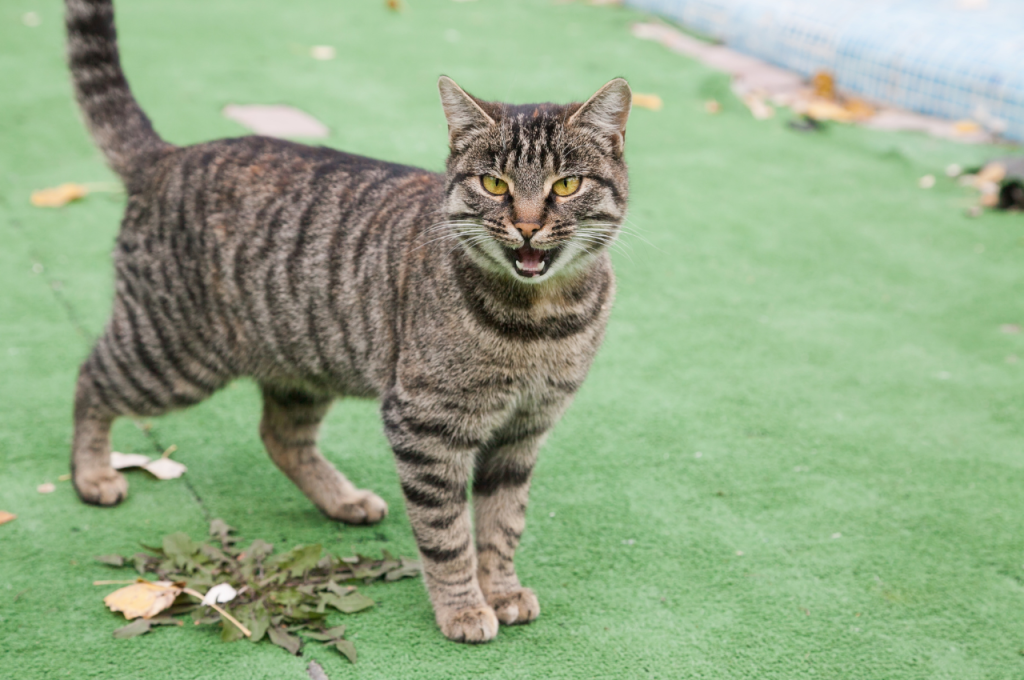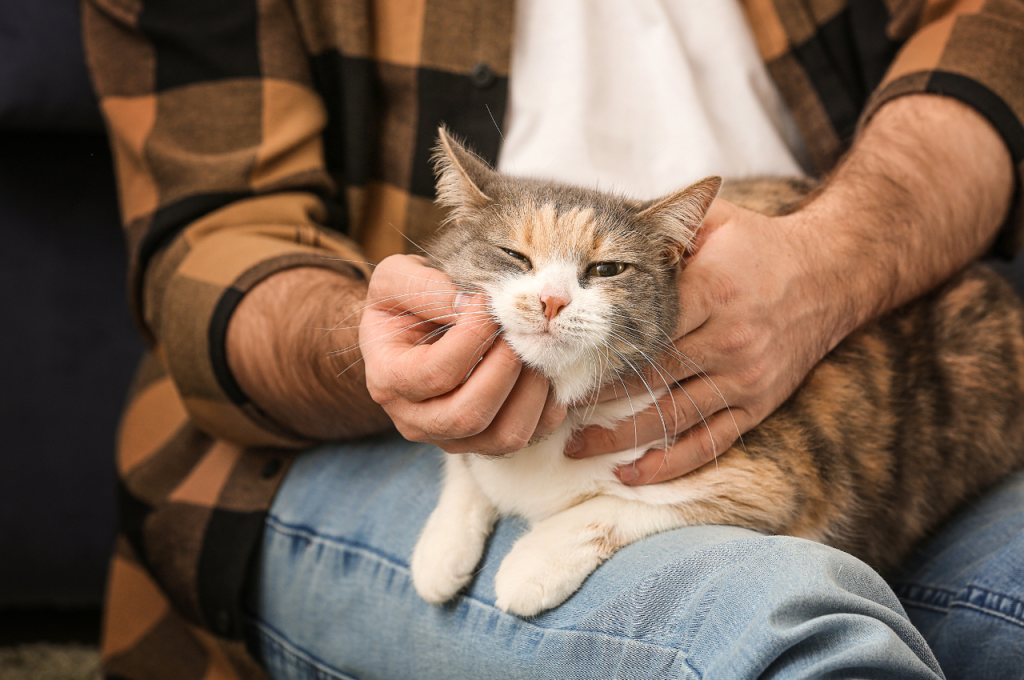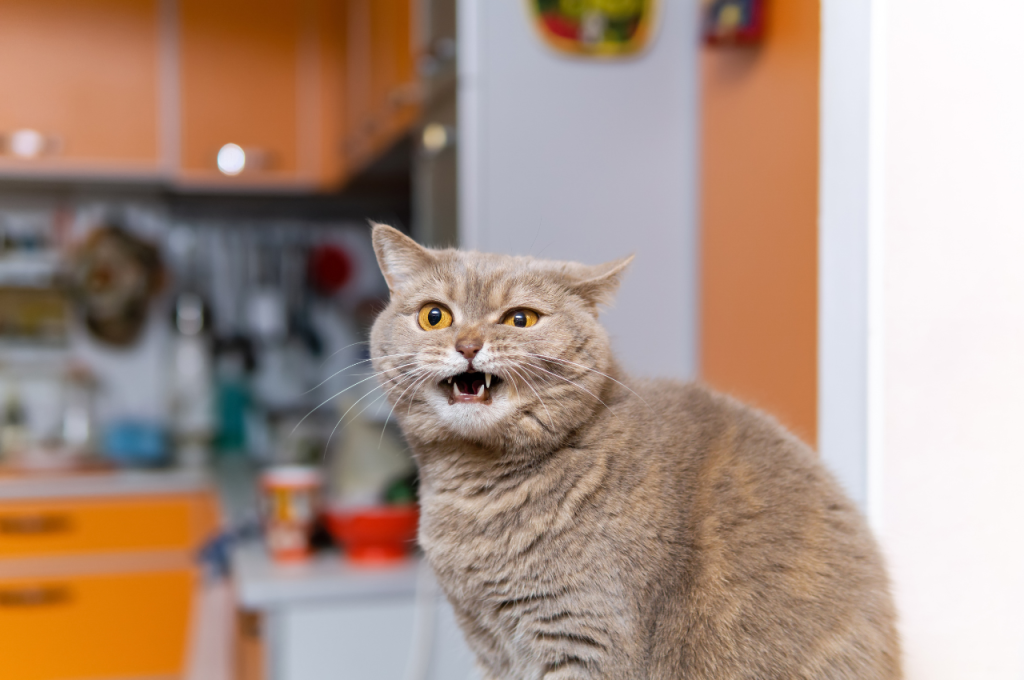To comfort a mother cat who lost her kittens, provide gentle physical touch and affection. Create a safe and calm environment for her to recover emotionally.
Losing kittens can be traumatic for a mother cat, so offering love and support is crucial during this difficult time. By showing empathy and care, you can help the mother cat cope with her loss and gradually heal from the emotional pain. Remember to be patient and understanding as she goes through the grieving process. Your presence and comfort can make a significant difference in helping the mother cat navigate this challenging period.
Recognizing Grief in Mother Cats
When a mother cat loses her kittens, she experiences a profound sense of loss and grief. It’s important for pet owners to recognize the signs of grief in mother cats so they can provide the necessary comfort and support during this difficult time.

Physical Signs of Feline Grief
Mother cats may exhibit physical signs of grief, including decreased appetite, weight loss, lethargy, and excessive grooming. These physical manifestations can be distressing to witness, but they are a natural part of the grieving process for mother cats.
Behavioral Changes Post-loss
Following the loss of her kittens, a mother cat may display behavioral changes such as increased vocalization, searching for her kittens, withdrawal, and changes in sleeping patterns. It’s crucial to observe these changes and respond with empathy and understanding.
Immediate Aftercare for The Bereaved Mother
After the heartbreaking loss of her kittens, the bereaved mother cat needs gentle and supportive care to help her navigate through this difficult time. Providing immediate aftercare for the mother cat is crucial in helping her cope with the loss and ensuring her well-being.
Creating a Quiet Space
Designate a quiet and secluded area for the mother cat where she can find solace and privacy. Ensure the space is comfortable and free from disruptions to allow her to grieve and recover. Provide a cozy bed, soft blankets, and familiar scents to help soothe her during this distressing period.
Maintaining Routines
Continue to maintain her regular feeding schedule and ensure she has access to fresh water at all times. Engage in gentle playtime activities to keep her physically and mentally stimulated. Consistency in her routine can provide a sense of security and help her cope with the loss of her kittens.
Emotional Support Techniques
Comforting a mother cat who has lost her kittens requires a compassionate approach and emotional support techniques. First, provide a quiet, safe space where she can retreat and feel secure. Offer gentle, soothing companionship, and maintain a calm demeanor to help reduce her stress.
Consider using pheromone diffusers or calming sprays designed for cats to create a comforting atmosphere. Providing soft bedding and her favorite toys can offer additional comfort. Ensure she receives proper nutrition and hydration to support her physical health during this time. Regularly check in with her and offer affectionate interactions to help her cope with the loss. Consulting with a veterinarian can also provide guidance on additional support measures for her emotional and physical well-being.
The Power of Presence
Being present with a mother cat who has lost her kittens can provide immense comfort. Sitting quietly near her and offering gentle strokes can convey a sense of support and understanding.
Interactive Play Sessions
Engaging in interactive play sessions with the mother cat can be beneficial. Using toys to stimulate her and encourage her to play can help redirect her focus and provide a source of emotional relief.
Physical Comfort Measures
To comfort a mother cat grieving the loss of her kittens, provide a soft blanket or bed for her to rest on. Gently stroke her fur and offer soothing words to show support during this difficult time. Creating a quiet and safe space can help her feel secure and cared for.
Warm Bedding and Cozy Spots
A mother cat who has lost her kittens may feel lost and alone, and providing warm bedding and cozy spots can help to comfort her. Place a soft blanket or towel in a warm and quiet area, away from any noise or distractions. You can also use a heating pad or hot water bottle to provide extra warmth, but make sure it is not too hot and always cover it with a towel to prevent burns.
Gentle Grooming
Grooming a mother cat who has lost her kittens can help to provide physical comfort and emotional support. Use a soft-bristled brush to gently stroke her fur, starting from her head and moving towards her tail. This can help to stimulate her natural grooming instincts and provide her with a sense of comfort and security. In addition to grooming, you can also provide her with a warm and safe environment, away from any potential dangers or stressors. This can include a quiet and cozy corner in your home or a comfortable bed or crate that she can retreat to when she needs to rest or relax.

Remember, providing physical comfort measures is just one way to help comfort a mother cat who has lost her kittens. It is also important to give her time and space to grieve and to offer emotional support and reassurance. With patience, love, and care, you can help her through this difficult time and provide her with the comfort and security she needs to heal.
Health Monitoring and Care
Health Monitoring and Care are crucial for comforting a mother cat who has lost her kittens. Providing proper nutrition and hydration along with regular veterinary follow-up is essential.
Nutrition and Hydration Focus
Ensure the mother cat has access to fresh water and offer high-quality cat food to meet her increased nutritional needs.
Veterinary Follow-up
- Schedule a check-up with the veterinarian to monitor the mother cat’s health.
- Discuss any concerns or changes in behavior with the vet promptly.
- Follow the vet’s recommendations for medications or supplements if needed.
Dealing with Lactation Post-loss
Comforting a mother cat who lost her kittens can be a challenging task, especially when dealing with lactation post-loss. It is important to provide emotional support to the mother cat, as well as help her manage her milk supply through a balanced diet and medication.
Losing her kittens can be a devastating experience for a mother cat, especially when she is still lactating. Dealing with lactation post-loss can be uncomfortable and even painful for the mother cat. As a pet owner, it is essential to know how to comfort the mother cat during this difficult time. Here are some ways to minimize discomfort and medical interventions if needed.
Minimizing discomfort
To minimize the discomfort of lactation post-loss, you can try the following:
- Gradually reduce the amount of food you give your cat to reduce milk production.
- Apply warm compresses to her mammary glands.
- Engage in gentle massage to help reduce swelling and pain.
- Provide a comfortable and quiet place for her to rest.
Medical interventions if needed
If your cat is experiencing excessive discomfort or pain, it may be necessary to seek medical intervention. Here are some medical interventions that can help:
- Medications can help reduce pain and inflammation.
- Hormone injections can stop milk production.
- Surgical removal of mammary glands may be necessary in severe cases.
Dealing with lactation post-loss can be challenging, but with proper care and attention, you can help minimize your cat’s discomfort. By following these tips, you can comfort your mother cat during this difficult time and help her recover from the loss of her kittens.
Introducing New Companions
Comforting a mother cat who has lost her kittens can be a delicate task. Introducing new companions, such as a stuffed animal or a gentle, friendly adult cat, can provide her with the companionship and comfort she needs during this difficult time. By offering her gentle affection and understanding, you can help her navigate through this challenging experience.
Fostering Other Kittens or Cats
When comforting a mother cat who has lost her kittens, introducing new companions, such as fostering other kittens or cats, can be a helpful step. Start by choosing compatible, calm, and friendly kittens or adult cats to minimize stress. Gradually introduce them to the grieving mother in a controlled environment, allowing her to adjust to their presence at her own pace. Monitor her reactions closely and provide her with plenty of personal space if needed. The presence of new companions can offer emotional support and stimulate her natural nurturing instincts, helping her heal from her loss. Ensure all new arrivals are healthy and that the introduction process is gradual to avoid overwhelming her. Regularly check in with a veterinarian for advice on the best approach to support her during this transition.
The Right Time for New Friends
Introducing new companions to a mother cat who has lost her kittens should be done thoughtfully and at the right time. Begin by allowing her time to grieve and adjust to the loss before considering new additions. When the time feels right, introduce new pets gradually and in a controlled manner to avoid overwhelming her. Ensure the new companions are calm and gentle to prevent additional stress. Monitor their interactions closely and provide a safe space for the mother cat to retreat if needed. Gradual introductions help foster positive relationships and reduce anxiety. Consulting with a veterinarian or animal behaviorist can offer additional guidance on making this transition as smooth as possible for her emotional well-being.
Long-term Emotional Health
Grieving a mother cat who has lost her kittens requires patience and understanding. Offer comfort through gentle petting and soothing words, creating a safe space for her to express her emotions. Providing extra attention and affection can help her navigate the difficult emotional journey toward healing and long-term well-being.
Monitoring for Lasting Changes
- Observe the mother cat for any unusual behavior.
- Look out for signs of depression or anxiety.
- Consult a vet if you notice significant changes.
Continued Affection and Attention
- Provide extra love and comfort to the mother cat.
- Engage in playtime and grooming sessions.
- Ensure a safe and calm environment for her.
When to Seek Professional Help
If a mother cat has lost her kittens, it’s essential to seek professional help when she displays prolonged signs of distress or refuses to eat. Consulting a veterinarian or animal behaviorist can provide the necessary support and guidance to comfort the grieving mother cat.

Losing kittens can be a traumatic experience for mother cats. As a pet owner, it’s important to comfort and support your feline friend during this tough time. However, there may be instances when your efforts may not be enough to console the mother cat. This is when you should consider seeking professional help. Here are some options to consider:
Behavioral Specialists for Cats
Behavioral specialists are experts in animal behavior and can help identify and address any underlying issues that may be causing distress to your cat. They can provide personalized training and advice on how to comfort and care for your pet during this difficult time. Some specialists may also recommend medication or therapy to help alleviate stress and anxiety.
Support Groups for Pet Owners
Support groups for pet owners can be a great resource for those who have lost their furry friends. They provide a safe and supportive environment where you can share your experiences, emotions, and concerns with others who have gone through similar situations. Support groups can help you cope with the loss of your kittens and provide comfort and guidance as you navigate the grieving process.
In conclusion, seeking professional help is a crucial step in ensuring your mother cat receives the care and support she needs to overcome the loss of her kittens. Whether it’s working with a behavioral specialist or joining a support group, there are many resources available to help you and your pet through this difficult time.
Conclusion
Comforting a mother cat who has lost her kittens requires patience, empathy, and understanding. By providing a safe and nurturing environment, offering gentle physical contact and reassurance, and allowing her time to grieve, you can help the mother cat navigate through this difficult time. Remember, every cat is unique, so be observant and adapt your approach accordingly. Your support will make a significant difference in helping the mother cat heal and find solace.
